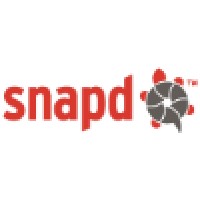Partially Integrated Community Classes
Students are offered placements in these programs by the Central Board Office and placement occurs through an IPRC.
Autism Program
This is a non-credit program based on Ministry curriculum guidelines that are modified or alternative to the curriculum, as set out in the Individual Education Plan. The program places emphasis on the development of literacy, numeracy, personal and social skills, communication skills, culinary skills, money management, transit training and community exploration, and work experience. The program provides a balance between academics and learning opportunities which promote and challenge each student to reach a maximum level of academic achievement, independence, and citizenship.
Autism Spectrum Disorder (ASD) Program
This program is for students identified with ASD who require a structured setting that targets social-emotional, communication, and behavioural needs. Generally, students will be working at the academic, applied or locally developed level and working towards their OSSD. Students work on a reduced timetable to allow for one period a day of social skills, anxiety management and/or organizational skills. The program also provides instruction for the development of individual strategies and technology with access to support personnel throughout their day.
Intensive Support Program
This non-credit program focuses on integration, literacy and numeracy skills, personal management skills, advocacy, problem-solving and critical thinking skills through an individualized program. Students are involved in authentic experiential learning opportunities that may include job shadowing, job twinning, and community-based work experience opportunities.
Post-Secondary Transition Planning Resource Guide
Social Opportunities for students
- Supervised lunchrooms are provided daily for students. The department has also created a separate supervised safe space for students who attend the cafeteria for lunch, to spend time in should they wish to do so for part of lunch.
- Peer Buddies Program is a student
run club supported by staff advisors. The club
provides opportunities for students to interact in a positive meaningful
way with their mainstream peers. Students are paired up and make a
commitment to spend at least one hour per week with their buddies. During the weekly get together, students
participate in a wide range of activities include eating lunch together,
conversation, playing cards and boards game, to name a few. The entire club also meets twice a semester
for larger celebrations such as the Introduction Luncheon, the Winter Holiday
Party, March Break and the end of year Best Buddies Prom.
- Students will have the various opportunities to go on field trips including but not limited to Magna's Hoedown, SNAP, Best Buddies Prom, & YRDSB Movie Days


